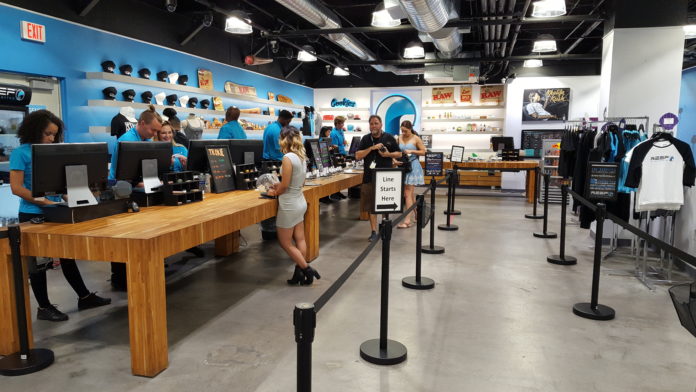CARSON CITY – The state of Nevada has mobilized to avoid a prolonged shortage of cannabis products available for sale by the 47 retail stores throughout the state currently licensed to sell cannabis to people 21 years of age and older.
On July 1, adult use sales were allowed in Nevada for the first time, and sales met or exceeded expectations. The Nevada Dispensary Association estimating early last week that $3 million in sales were generated between last Saturday and Tuesday. The state’s haul in terms of in tax revenue was about $1 million.
But retailers were already concerned that no matter how much product they had on hand, a court battle over distribution could very well leave them high and dry. Now they await the outcome of a hearing this Thursday, July 13, when the Department of Taxation will consider, and surely adopt, emergency regulations intended to open the food chain.
The current situation is the result of the decision by state legislators to provide liquor distributors with exclusive rights to transport cannabis products to retail shops for the first 18 months following legalization. The Department of Taxation quickly determined that there was insufficient interest among liquor distributors, a handful of which even submitted applications, not one of which has been approved.
After the department opened the application process to non-alcohol distributors, it was sued in state court by the liquor distributors’ trade group, the Independent Alcohol Distributors of Nevada (IADON), which argued that the state’s action was “arbitrary” and violated the state’s original policy. The judge ruled in May in IADON’s favor, setting the stage for the current situation of increasingly emptying shelves.
As of late last week, the seriousness of the situation was apparent. Department of Taxation spokesperson Stephanie Klapstein expressed as much in an email issued Friday. “Based on reports of adult-use marijuana sales already far exceeding the industry’s expectations at the state’s 47 licensed retail marijuana stores, and the reality that many stores are running out of inventory,” she said, “the Department must address the lack of distributors immediately. Some establishments report the need for delivery within the next several days.
“The business owners in this industry have invested hundreds of millions of dollars to build facilities across the state,” she added. “They have hired and trained thousands of additional employees to meet the demands of the market. Unless the issue with distributor licensing is resolved quickly, the inability to deliver product to retail stores will result in many of these people losing their jobs and will bring this nascent market to a grinding halt. A halt in this market will lead to a hole in the state’s school budget.”
The department’s state of emergency was issued that same day and immediately endorsed by Governor Sandoval. The emergency regulations, if approved Thursday, should provide much-needed assurance to the industry and the state, but they are not necessarily an automatic fix to the current state of affairs.
“If the regulation passes and the taxation department issues distribution licenses, not all of the industry’s hardships will be solved,” reported the Reno Gazette-Journal. “Many cultivation centers are in the midst of the grow cycle of some strains of marijuana, meaning there will be a lag between dispensaries selling out and the next harvest. Additionally, some cultivation centers already have sold futures of their next crop.”












